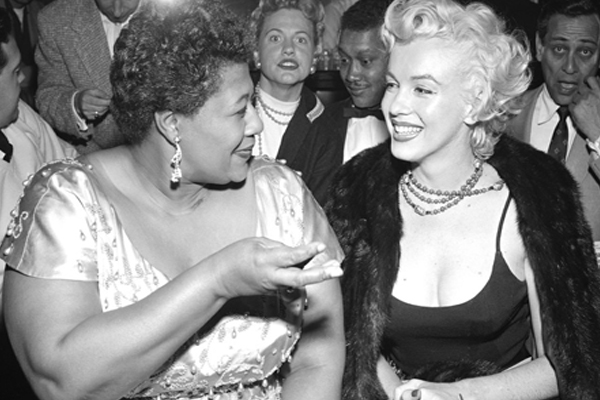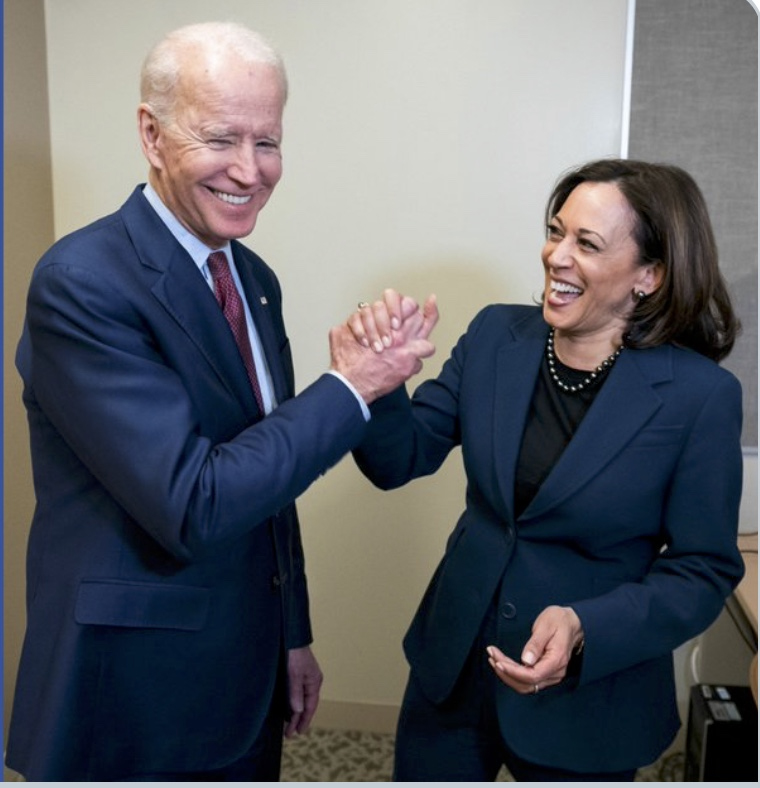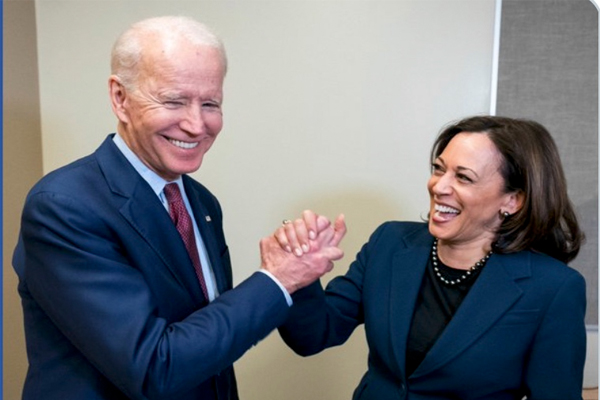In this week’s guest column, diversity and inclusion expert Colin Heyman explores the art of allyship at work. Not only does he outline what we can learn from great examples of allyship from people like Marilyn Monroe and Joe Biden, but he also shares what works, the challenges, White privilege, as well as how to be a better workplace ally.
In the 1950s, Ella Fitzgerald was increasingly being recognised for the wonderful singer that she was. However, many clubs would not book her to play because she was Black. This included the Mocambo Club in Hollywood frequented by many film stars, and where Frank Sinatra made his Los Angeles debut back in 1943.
Ella Fitzgerald described what happened next as follows: “I owe Marilyn Monroe a real debt … she personally called the owner of the Mocambo, and told him she wanted me booked immediately, and if he would do it, she would take a front table every night. She told him – and it was true, due to Marilyn’s superstar status – that the press would go wild.”
POWER OF PRIVILEGE
Monroe, who of course was one of the biggest stars in the world at the time, was true to her word. Thanks to Monroe’s privilege and allyship, Fitzgerald’s career was launched and her talent was recognised on the biggest stage. Monroe was to some extent repaying a debt – it was by listening again and again to Ella’s records that she had been able to improve her own singing voice.

I read about this story this past summer, and it is a good example of allyship. As a White, straight, non-disabled man who works in diversity and inclusion, what it means to be an ally has always been a big consideration for me. But the resurgence of the Black Lives Matter movement has brought these considerations into even sharper focus.
Here are some thoughts about why we choose to be allies, what gets in our way and what we can do in the workplace to be better allies. Because it is so topical at the moment, this article is centred around race, but much is equally applicable to other oppressions.
WHY BE AN ALLY?
There are a number of reasons for people who are privileged to be an ally to disadvantaged, underprivileged groups. For me, the first reason is what you might call a selfish one and that is to improve my life. I believe that being put in the position of privilege and entitlement brings many material and social advantages, but at the cost of taking away some of our humanity.
An example: I was brought up in the 1960s and 1970s by a father who was born in 1912. I grew up with an outdated view of manhood – primarily that men don’t feel or show emotion; that men should be strong. It’s partly as a result of the women’s movement and other developments since then, that this rigidity has been relaxed and it has increasingly become acceptable for men – like me – to show weakness and emotions other than anger. We still have some way to go, but this progress has been very liberating and healing for me. I support gender equality because of what it can bring to me. To quote Emma Lazarus, who also wrote the inscription on the Statue of Liberty, “None of us are free till all of us are free”.
PERSONAL & PROFESSIONAL REASONS
Another reason for being an ally is that I believe it is part of our purpose and responsibility, as human beings to leave the world in a better place than we found it. Part of that is being an ally. This reason is partly altruistic, but also partly selfish; because I am happier in a town, country and world where there is more justice and less inequality.
But practically speaking, the link between diversity and inclusion in our workplaces and increased profitability is clear, thanks to plenty of research done to prove the business case, from consultancies such as McKinsey. It needs all of us to change to make workplaces inclusive and being an ally makes a big contribution to this.
WHAT GETS IN THE WAY?
However much we may choose to be an ally, I also think that there are a number of feelings and thoughts that can get in our way, even when we are ‘sympathetic to the cause’; processes that stop us moving to action. Some of these include:
Being over sympathetic
This goes something like “poor people”; “they are suffering so much”. It’s important that we don’t see people of colour as helpless and us as their saviours, but rather look for how we can support them in their struggle, in which they are already strong.
Guilt
“Few are guilty but all are responsible”, as quoted by Rabbi Abraham Joshua Heschel. Let’s take responsibility and move to action rather than wallowing in guilt about being White and what our people have done to Black people in the past.
Fear of getting it wrong
Too often White people wait until they have enough knowledge and clarity about what needs to be done before acting, so that they can be sure they will “get it right”. Whilst this may come from a good place, the fact is that this will only permanently delay action. There is no way of getting it right, because what is ‘right’ for one person of colour may not be okay for another one.
Intellectualising
Trying to ‘work it all out’ and understand about racism before moving to action.
MOVING TO ACTION
I make no claims for this to be a comprehensive list. There are many ways in which we can sabotage ourselves from moving to action. My call is to focus on what we can do differently. It is what we do now and how we impact on others that will bring wider change.
The model below shows this, very clearly. It’s a model which was first put forward by Andrew M Ibrahim, Chief Medical Officer and Professor of Surgery in Ann Arbor Michigan. It demonstrates what we can do as White people to combat racism.

EXAMINING WHITE PRIVILEGE
As the model above shows, there are two sides to taking action. One is external, acting in the world. The other is internal. This is about identifying as White and identifying how we have benefited from racism. Neither of these are comfortable things to do, but they are really important as part of moving to action, and doing so with more self-awareness.
I recommend two resources: The White Privilege Test, to identify how we have benefited from racism, but also to better understand what it is like for people of colour to live in a racist society, and the day to day challenges they face. Secondly, Robin di Angelo, who is one of the pioneers in the area of White privilege, has spoken widely about this, and she has also published a book entitled White Fragility.
WORKPLACE ACTIONS
Whilst the internal work is important, it is crucial that this leads to external action. There are many actions that we can take as allies in our workplaces. They include:
Mentoring
This can be formal or informal. You can be the person that a person of colour comes to, whether it’s to bounce ideas off you; navigate the organisation; get contacts that you have and they don’t; or simply to be encouraged to ‘aim high’.
Advocating and raising the issues
You can be the person who raises the issue of inclusion. For example, how can we make sure this product reaches our Black customers? How can we make this event accessible, comfortable and safe for all? How can we take positive action in this upcoming recruitment process to make sure we get a diverse range of applications?
Speaking out
For me, constructive challenging, speaking out, is one of the most important actions that we can all take. As the Chief of the Australian Army, Lieutenant General David Morrison, once said: “The behaviour you walk past is the behaviour you accept.”
Supporting people of colour into positions of power
President-Elect Joe Biden’s choice of Kamala Harris as his running mate is a great example of this. It’s not just that there is a person of colour in a position of power, but also the message that sends to young people about what is possible. In my case I have been looking at how I can involve people of colour more in my work. This doesn’t mean that Kamala Harris or people I am working with are chosen just because they are people of colour. They are chosen because they have all the qualifications and abilities to do the job, but we might overlook them and go for someone who is more like us.

Underlying all of this is the belief that YOU can make a difference by acting where YOU are. I am a great believer in the ripple effect. By having an impact on the people around us, and encouraging them to have an impact on the people around them, change can ripple out. These are my thoughts. I’m interested to hear your views on how to be better allies; not only to people of colour, but also to other groups fighting systemic oppression and injustice.

AUTHOR BIOGRAPHY
Colin Heyman has been working in the field of leadership and diversity for over 20 year, as a consultant, trainer, facilitator and coach. His passion for leadership and diversity arises from both his own experience and from a firm belief that improving people’s leadership and diversity practice are vital to improving our world.
Check out his column on how to address race inequality in the workplace here.







































